Search Results
Showing results 1 to 20 of 55
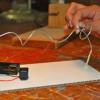
Circuit Game
Source Institutions
In this activity, learners build a game that tests their steadiness. Learners construct the game board by setting up an electrical circuit and a wand.

Battleships: Searching Algorithms
Source Institutions
This activity explores the main algorithms that are used as the basis for searching on computers, using different variations on the game of battleships.

Guess My Number
Source Institutions
In this game, learners experience how computers divide a big problem into many smaller ones and how they use binary "yes"/"no" questions.
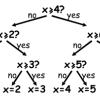
Twenty Guesses: Information Theory
Source Institutions
This activity introduces the idea that computer scientists measure information by how "surprising" a message is.

Pinball Wizard
Source Institutions
In this hands-on engineering project, kids use two simple machines, levers and inclined planes, to construct their own pinball machines.
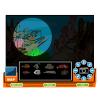
Underwater ROV
Source Institutions
In this online Flash game, learners will explore a coral reef using an underwater remotely operated vehicle (ROV).

Exploring the Universe: Space Guess Quest
Source Institutions
Space Guess Quest is a fun game that encourages participants to identify the many types of objects in space, from human-made spacecraft to nebulas, galaxies, stars, and worlds.

Building Bingo
Source Institutions
In this on site "field trip" activity (located on pages 6-9 of PDF), learners get hands-on experience identifying building materials by playing "Building Bingo".
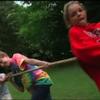
Tug-of-War
Source Institutions
This activity (on page 2 of the PDF under SciGirls Activity: Tug O' War) is a full inquiry investigation into tug-of-war physics. Groups of learners will test two tug-of-war strategies.
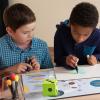
Exploring the Solar System: Mission to Space Board Game
Source Institutions
In this tabletop board game, players will represent a team of scientists and engineers sending a spacecraft on a mission to space.
Properties of Metals
Source Institutions
In this activity, learners explore the properties of metals at four stations. The stations include A) Magnetism and Breakfast Cereal; B) Conductivity of Metals; C) Alloys; and D) Metal Plating.

The Carbon Cycle: How It Works
Source Institutions
In this game, learners walk through an imaginary Carbon Cycle and explore the ways in which carbon is stored in reservoirs and the processes that transport the carbon atom from one location to another

Exploring Size: Powers of Ten
Source Institutions
In this activity, learners play a card game that explores the relative sizes of various objects. Learners compete to organize their hand of cards into lists of objects from largest to smallest.
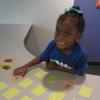
Exploring Size: Memory Game
Source Institutions
In this activity, learners play a card game that explores different size scales--macro, micro and nano.
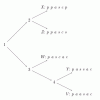
Phylogenetics
Source Institutions
This activity lets learners participate in the process of reconstructing a phylogenetic tree and introduces them to several core bioinformatics concepts, particularly in relation to evolution.

Balls and Ramps
Source Institutions
In this activity, learners use simple, everyday materials to experiment with balls and ramps.
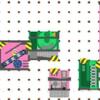
Mechanical Madness
Source Institutions
In this online Flash game, learners test their engineering know-how, moving a collection of mechanical parts onto a board to make complete a system of parts that will move a ball from start to finish.

Artificial Intelligence: The Intelligent Piece of Paper
Source Institutions
This activity explores what it means for a computer to be intelligent and introduces the topic of what a computer program is and how everything computers do simply involves following instructions writ
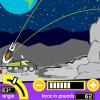
Planetary Rescue Squad
Source Institutions
This is an online Flash game where learners can experiment with ballistics and how to compensate for the varying levels of gravity found on the planets of our Solar System.

Mating Game
Source Institutions
In this game (on pages 14-21), learners explore how each human being inherits genetic traits such as eye color.
